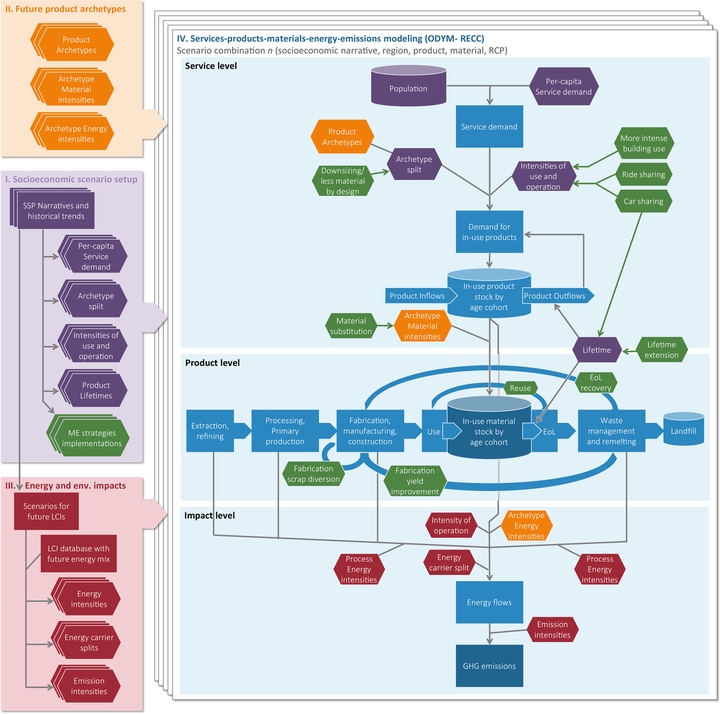Linking service provision to material cycles: A new framework for studying the resource efficiency–climate change (RECC) nexus

Abstract
Material production accounts for 23% of all greenhouse gas emissions. More efficient use of materials—through decoupling of services that support human well‐being from material use—is imperative as other emission mitigation options are expensive. An interdisciplinary scientific assessment of material efficiency and its links to service provision, material cycle management, and climate policy is needed to identify effective strategies and help design the policy framework required for their implementation. We present the resource efficiency–climate change (RECC) mitigation framework, a first step toward such a comprehensive assessment. RECC is based on dynamic material flow analysis and links the services provided (individual motorized transport and shelter) to the operation of in‐use stocks of products (passenger vehicles and residential buildings), to their expansion and maintenance, and to their material cycles to model mitigation strategies and analyze trade‐offs for environmental impacts along the products’ life cycle. A key innovation of RECC is the upscaling of product archetypes with different degrees of material and energy efficiency, which are simulated with engineering tools. We utilize RECC with augmented storylines of the shared socioeconomic pathways to describe future service demand and associated material requirements. Ten material efficiency strategies at different stages of the material cycle can be assessed by ramping up their implementation rates to the identified technical potentials. RECC provides scenario results for the life cycle impacts of ambitious service–material decoupling concurrent with energy system decarbonization, giving detailed insights on the RECC mitigation nexus to policy‐makers worldwide.